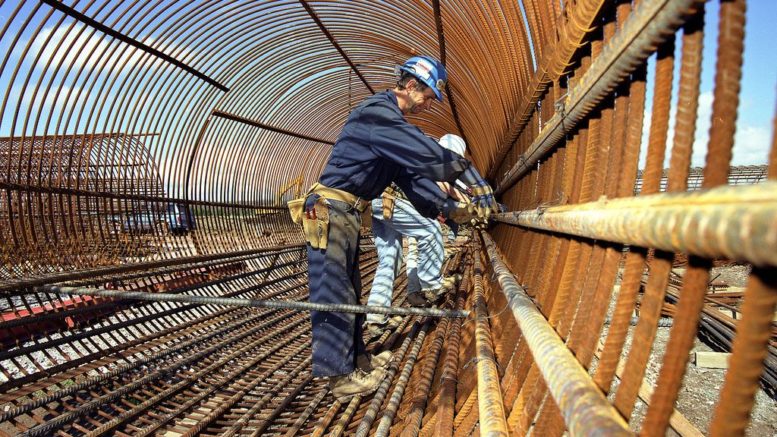ConDig (01-Aug–23). Construction spending in the US rose 0.5% in June from the month prior to a seasonally adjusted annual rate of $1,938.4 billion following a rise in both single and multifamily housing sectors, according to latest figures from the Commerce Department.
The Commerce Department also reported that data for May was revised higher to show construction spending surging 1.1% instead of 0.9% as previously reported.
The June figure was also 3.5% above the June 2022 estimate of $1,873.2 billion, while for the first six months of the year spending was 3% above the year prior to $917.4 billion.
It comes as spending on private construction projects edged up 0.5%, while investment in residential construction nudged 0.9% higher after rebounding 2.9% the month previously.
Residential construction was at a seasonally adjusted annual rate of $856.3 billion in June, 0.9% above the revised May estimate of $848.6 billion.
Nonresidential construction was at a seasonally adjusted annual rate of $660.6 billion in June, virtually unchanged from the revised May estimate of $660.8 billion.
Public construction was estimated at a seasonally adjusted annual rate of $421.4 billion, 0.3% above the revised May estimate of $420.2 billion.
“Nonresidential construction spending growth downshifted over the past two months,” said Anirban Basu, chief economist at the Associated Builders and Contractors. “While stakeholders can expect ongoing spending growth in public nonresidential construction segments as more Infrastructure Investment and Jobs Act monies flow into the economy, private developer-driven activity appears to be drying up in the context of higher costs of capital and tighter credit conditions. Among other things, these dynamics will translate into larger spreads in performance among contractors.”
He added that while those that focus on public work stand to remain busy for years to come, those who specialize in meeting the needs of developers of office buildings, hotels and shopping centers are likely to struggle to support backlog going forward.
